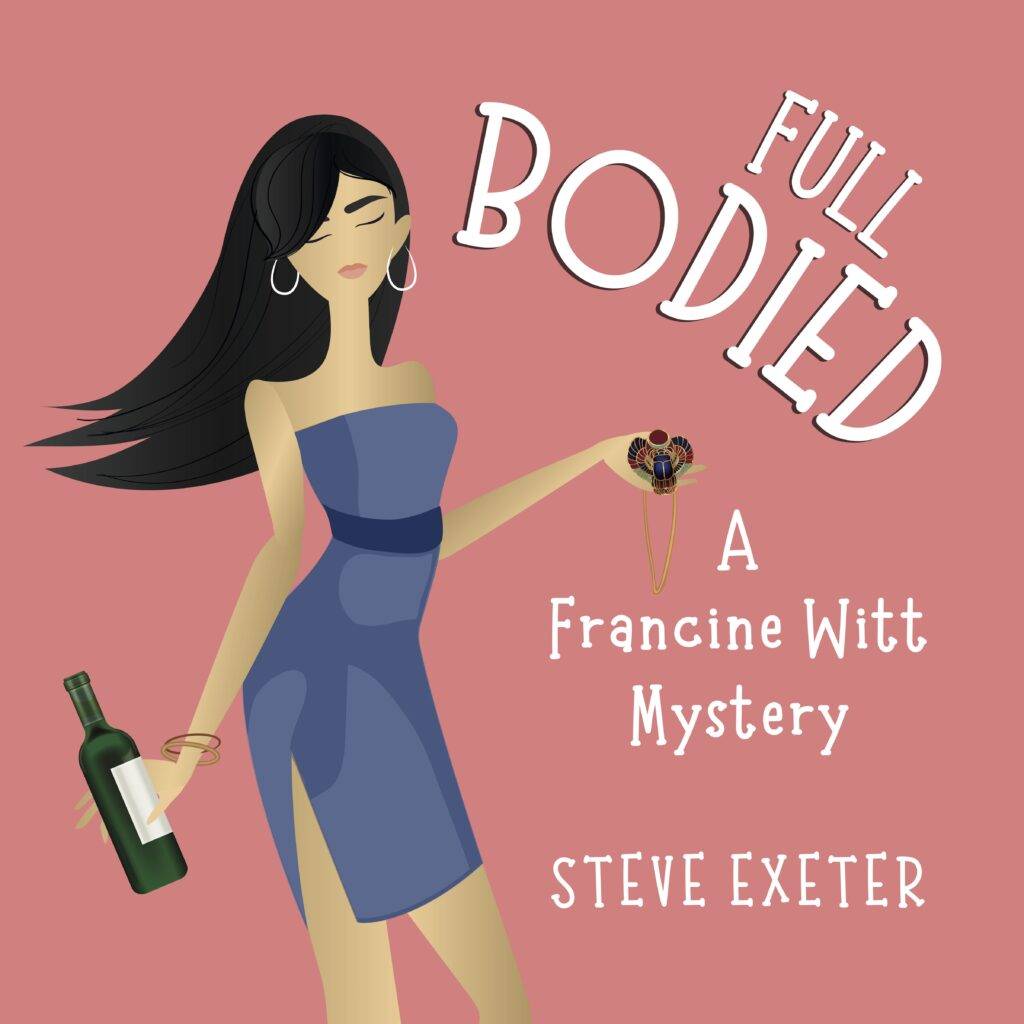FULL BODIED: A Francine Witt Mystery | Audiobook

Uncork the Audiobook Adventure narrated by Ella Whitehead
Are you ready for a thrilling blend of ancient secrets, contemporary humour, and a dash of feminist flair? Look no further than FULL BODIED: A Francine Witt Mystery, now available in audiobook format!
Imagine a world where wine and murder collide—a place where uncorking secrets is as exhilarating as sipping a well-aged Bordeaux. Francine Witt, our witty and wine-savvy heroine, takes centre stage in this delightful mystery. She’s not your typical Pulitzer Prize-winning journalist; instead, she’s a successful blogger, influencer, and—wait for it—a wine expert!
When an auction for a long-lost bottle of 1943 Margaux—a wine rumored to hold the key to Queen Nefertiti’s hidden treasure—takes place, Francine finds herself covering the event. But hold onto your wine glasses, because things take a thrilling turn: she witnesses two men swiping that precious bottle from none other than renowned Egyptologist Hermione Radcliffe, the auction winner!
And that’s just the beginning! As prominent Egyptologists start dropping like overripe grapes, Francine gets thrust into the story of a lifetime. Think Agatha Christie meets Bridget Jones, with a feminist twist.

Close your eyes and let Ella Whitehead transport you. Ella’s voice weaves through the twists and turns of this mystery, making each character come alive. Whether you’re commuting, doing chores, or simply relaxing with a chilled glass of Chablis, the audiobook version of FULL BODIED promises an immersive experience.
- 🎙️ Ella Whitehead’s Talent: Ella’s narration adds depth and charm to every scene. You’ll feel like you’re right there with Francine, deciphering clues and savouring fine wines.
- 🍷 Wine Culture and Intrigue: If you love wine (or even if you’re just curious), this book serves up a delightful blend of wine facts, historical intrigue, and contemporary humour.
- 🕊️ Feminist Twist: Francine Witt isn’t your typical damsel in distress. She’s smart, resourceful, and unafraid to tackle mysteries head-on.

How to Get Your Ears on the Audiobook
- Audible: Visit Audible to grab your copy. If you’re new to Audible, Prime members can enjoy two free audiobooks during their trial. Plus, you’ll have access to thousands of included audiobooks, Originals, and podcasts.
- Apple Books : Download from the app on your iPhone, iPad, or desktop. Take Francine’s adventures with you wherever you go!

So, my fellow mystery enthusiasts, pour yourself a glass of your favourite vintage, settle into a cosy spot, and let Ella Whitehead guide you through the enigmatic world of FULL BODIED: A Francine Witt Mystery.
